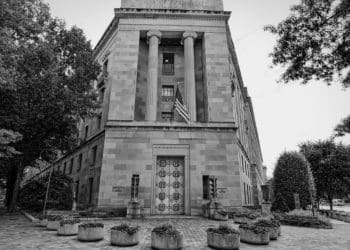The Escobar decision paved the way for a potential loophole in the False Claims Act that U.S. senators aim to close. If passed, the False Claims Amendments Act of 2021 will fundamentally shift the regulatory landscape for businesses that contract with the government.
On July 26, 2021, a bipartisan group of U.S. senators, led by Senator Chuck Grassley (R-Iowa), introduced the False Claims Amendments Act of 2021. The proposed amendment is the most recent effort by the legislature to come to grips with the relatively new court opinions addressing fraud against the government. This effort is also in direct response to the massive federal funding issued to both individuals and businesses in response to the COVID-19 pandemic. The proposed legislation is another wake-up call for those doing business with the government about the need to be diligent in their interactions, billings and other reporting obligations to avoid the dire consequences related to potential fraud — negligent or intentional — against the federal government.
The proposed legislation would modify the False Claims Act (FCA) in a number of ways, which include:
- Shifting the burden and modifying the standard for establishing whether a defendant’s misconduct was “material” to the government’s payment decision;
- Permitting the government to seek reimbursement of attorneys’ fees and costs for responding to discovery requests in non-intervened qui tam ligation;
- Establishing a standard of review for evaluating government motions to dismiss; and
- Extending the FCA’s existing anti-retaliation provisions to “post-employment retaliation.”
Many of these proposed changes are in response to the Supreme Court’s decision in United Health Services v. United States ex rel. Escobar, which Senator Grassley described as making “it all too easy for fraudsters to argue that their obvious fraud was not material simply because the government continued payment.” If passed, the amendments will impact current and future FCA investigations, whistleblower complaints and litigation. The proposed changes to the FCA should also alter the manner in which companies handle these claims moving forward, as set forth more fully below.
FCA History
The FCA was passed on March 2, 1863, during the American Civil War. The purpose of the act was to combat fraud perpetrated by companies that sold supplies to the Union Army. In order to assist the government in prosecuting cases for fraud against the government, the FCA was established to authorize what are called qui tam lawsuits. Qui tam lawsuits are those brought by private whistleblowers (also known as “relators”) under the FCA, which if successful, entitle to the relator to a portion of the recovery collected by the government.
The FCA imposes liability on a person or entity if they (1) knowingly present, or cause to be presented, a false or fraudulent claim for payment or approval to the government or (2) knowingly make, use or cause to be made or used a false record or statement material to a false or fraudulent claim.
The FCA has been amended by Congress several times since it was first enacted. For example, due to reported widespread fraud against the government in the 1980s, particularly within the defense contractor industry, Congress eliminated certain provisions of the act in 1986 that had limited its effectiveness.
Since its inception, the FCA has been one of the government’s best weapons to fight against fraud. Specifically, in addition to encouraging (and protecting) prospective whistleblowers to report potential fraud (negligent or otherwise), the law provides the government with several investigative tools that allow it to thoroughly examine claims in a unilateral manner (i.e., there is often little opportunity for companies under investigation for alleged FCA violations to fully defend themselves). Instead, companies are routinely required to respond to extensive requests for information without the benefit of knowing the actual allegations being investigated. As a result, companies can spend significant resources during an investigation to meet the varied demands of the government agents.
This one-sided approach to an investigation can be quite lucrative for the government and the relator. According to the Department of Justice, in fiscal year 2020 alone, the government recovered over $2.2 billion in FCA settlements and judgments — over $1.6 billion of which is attributed to whistleblower-initiated lawsuits. Given the FCA’s tremendous success at combating fraud, 31 states have adopted their own version of the Act.
The Escobar Case
The Escobar case involved a teenager that was receiving treatment at a mental health facility owned and operated by Universal Health Services, Inc. Following the teenager’s death, which resulted from an adverse reaction to medication prescribed at Universal, the plaintiffs learned that many of the mental health professionals at Universal were not appropriately licensed to provide mental health treatment. The plaintiffs also discovered that Universal had submitted claims to the Massachusetts’s Medicaid program that made representations about the specific services provided by certain types of professionals but that failed to disclose serious violations of regulations pertaining to staff qualifications and licensing requirements for these services. Thus, the plaintiffs filed a qui tam lawsuit against Universal.
Because the FCA does not define “false or fraudulent claim,” the plaintiffs relied on the “implied false certification theory.” This theory means that when an entity submits a claim for payment or reimbursement to the government, it implicitly certifies compliance with all applicable statutes, regulations or governmental contracts. And pursuant to the theory, if that claim or reimbursement fails to disclose a violation of material statutory, regulatory or contractual requirement, the entity has made a misrepresentation that renders the claim or reimbursement “false or fraudulent.”
In Escobar, the Supreme Court held that to be actionable under the FCA, an alleged misrepresentation about compliance with a statutory, regulatory or contractual requirement must be “material” to the government’s payment decision. With respect to materiality, the Court determined that the proper inquiry is whether the defendant knowingly violated a requirement that the defendant knows is material to the government’s payment decision. Moreover, the Court held that when evaluating materiality, the government’s decision to expressly identify a provision as a condition of payment is relevant, but not automatically dispositive.
The Supreme Court also noted that if the government pays a particular claim in full despite its actual knowledge that certain requirements were violated, “that is very strong evidence that those requirements are not material.” The Court ultimately determined that the FCA does not support a finding that any statutory, regulatory or contractual violation is material per se if the defendant merely knows that the government would have been entitled to refuse payment were it aware of the violation. Rather, the falsehood must have been serious enough that the government would have withheld payment.
The Proposed 2021 Amendments
The FCA Amendment Act of 2021 would result in several substantive changes to the existing law. First, in light of the Supreme Court’s above-described findings with respect to the materiality standard, the FCA Amendment Act of 2021 would impose a higher burden of proof on defendants — clear and convincing evidence — to rebut an allegation of materiality by establishing that the alleged fraud was in fact not material. In contrast, the government and relators must only prove FCA claims by a preponderance of the evidence. The apparent goal of this change is to make it more difficult for defendants to escape liability, even in instances in which the government continued payment of the claims.
Second, the proposed amendments would require a party to reimburse the government for costs associated with discovery in cases in which the government declines to intervene. The party requesting discovery will have to reimburse the government for discovery costs, unless it can demonstrate that the discovery is relevant, proportional to the needs of the case and not unduly burdensome to the government. The obvious purpose of this amendment is to deter frivolous, costly and overly arduous discovery requests.
Currently, the Act allows the government to file a motion to dismiss an FCA case brought by a qui tam relator if the government declines to intervene and believes the case lacks merit. The third important change in the FCA Amendment Act of 2021 maintains the government’s ability to file for dismissal; however, the amendment may require a hearing before dismissal can occur, which would give the relator an opportunity to show that the government’s reasons for dismissal are “fraudulent, arbitrary and capricious, or contrary to law.” Again, this provision appears to favor whistleblowers by attempting to make it more difficult for the government to successfully move for dismissal.
Finally, in light of the current circuit court split regarding whether the FCA’s anti-retaliation provision applies to only current employees or to current and former employees, the FCA Amendment Act of 2021 establishes that the act’s anti-retaliation provision applies to “any” employee, current and former.
Impact
The FCA Amendment Act of 2021 is not likely to lead to a “sea change” in the handling of FCA investigations or litigation. Most notably, despite multiple critiques, the proposed amendments still fail to substantively address the definition of “materiality” and the “knowledge” element of the potential fraudulent act that was not identified or acknowledged by the government prior to payment. This means that if the government is aware of the alleged fraud and does not take action or if the alleged inaction is not significant to the performance of the contract, then the company may not be liable for an FCA violation. This is currently handled on a case-by-case basis with significant discretion given to the court based on the applicable facts and interpretation of varied appellate opinions post-Escobar.
Under the FCA Amendment Act of 2021, the “materiality” issue may now arise two separate times during the course of litigation. First, this issue may be litigated when determining whether a case states a viable claim for relief pursuant to a motion to dismiss, which utilizes a preponderance-of-the-evidence standard. Second, it may be argued again during the case-in-chief if the defendant challenges materiality under a clear-and-convincing standard. This burden shift to defendants and varying standards will likely lead to extensive litigation regarding the constitutionality of such a requirement, specifically with respect to whether it violates a company’s due process rights.
For these reasons, the administrative factors related to an FCA investigation and eventual litigation could be impacted by the proposed amendments. In addition to shifting the burden as to proving or disproving “materiality,” the ability of either party — the relator and defendant company — to obtain discovery from the government may become increasingly difficult. Of course, this is not an issue if the government elects to intervene in a case. In those instances, the government is required to disclose evidence related to the claims, sometimes affirmatively, according to the applicable rules of procedure.
In the event the government declines to intervene and the relator chooses to proceed, the parties seeking the discovery from the government may be required to pay for the costs associated with the discovery. But, this is not necessarily new. The government regularly requires payment for its efforts to comply with discovery or public records requests. In fact, some agencies have the authority to decline to respond to third-party subpoena requests based on the burden to respond. Although this may increase the costs of discovery, these cases are often extremely expensive regardless. What may now occur, however, is that the relator and defendant will be required to share in these costs, which could be directed by a court order.
In addition, there are concerns with the proposed amendment related to the Department of Justice’s ability to seek dismissal of a case — rather than just declination — which may result in additional burdens on the government. By way of background, the DOJ had historically sought dismissal in very few cases. That changed in 2018, when the DOJ issued guidance indicating that it would adopt a more expansive view toward dismissal in an effort to curb unworthy cases brought by vexatious litigants. The intent behind this change in posture was to preserve government resources with respect to responding to discovery and producing witnesses, as well as to ensure that unfavorable case law was not developed. These are all legitimate reasons why increased dismissal of FCA cases was and is important. And the DOJ has never taken its authority to seek dismissal of these cases lightly. These decisions are most often supported by a tedious deliberative process. Accordingly, the proposed amendment that requires the DOJ to justify its decision to seek dismissal — and that likely requires a hearing and opportunity for the relator to rebut the DOJ’s decision — is unlikely to have a significant impact on future cases.
The bottom line is that the proposed FCA Amendment Act of 2021 should be a wake-up call for companies doing business with the government. In responding to the COVID-19 pandemic and in preparation for anticipated significant infrastructure improvement legislation, there has been and likely will be trillions of dollars flowing to government contractors. Companies should consider engaging directly or indirectly, via trade groups, in the proposed FCA Amendment Act and ensuring that modifications are considered. Specifically, the legislature should consider curbing the ability of “bad actor” employees from filing lawsuits when they either perpetuate acts in furtherance of the false claims or are aware of the company’s practices and fail to alert them of the problem. For example, a proposed amendment could require a whistleblower to first report purported violations of the FCA to the company and allow a period for correction before the bad actor can benefit from a qui tam action. This may also include “rogue” employees that hide potential breaches of contract for personal gain and in breach of their fiduciary responsibilities to the company.
Regardless, companies should consider taking this opportunity to update their policies and procedures; ensure adequate fraud, waste and abuse reporting hotlines; provide mandatory training; and enhance audit functions to address potential inadvertent fraud before such actions turn into an FCA investigation. The FCA should not be a “gotcha” legislation. The government should be incentivized to work with companies to avoid FCA matters and ensure that basic breaches of contract are not immediately turned into onerous lawsuits.
Although the FCA Amendment Act of 2021 addresses some of the ongoing uncertainties with the Act, significant issues remain that these proposed amendments simply kick down the road to be addressed by governmental agencies and eventually the courts on a case-by-case basis.
















